

Discover more from Monday Musings by David Perell
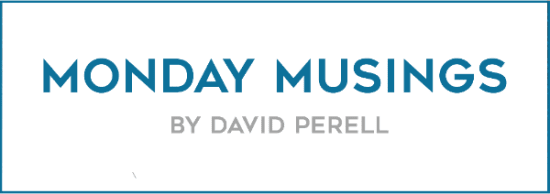
Hey everybody,
First and foremost… my online course, Write of Passage has been a roaring success. In just a month, I’ve led the launch of hundreds of online websites, email newsletters, and blog posts. I’m particularly impressed with weekly newsletters from Shanu Matthew and Sid Jha. Next week, students will collectively publish more than 100 long-form essays.
We’ve made major upgrades and the new and improved version begins on August 14th. If you’re ready to take the course, you can sign up here. As an exclusive thank you for being a Monday Musings subscriber, you’ll be shielded from the future price increases if you sign up in the next 48 hours. Writing is the new networking and if you’d like to start sharing your ideas, this is your chance.
Here’s a recent email from one Write of Passage student:
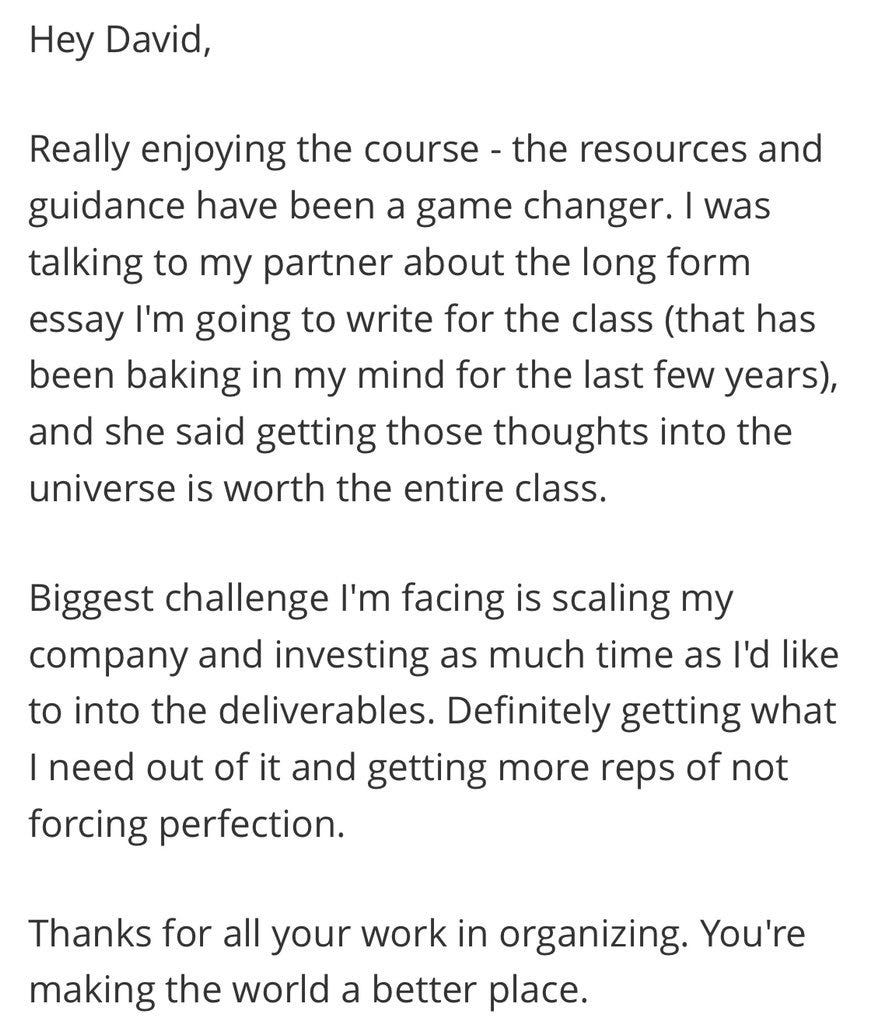
A Week in the Midwest
Back in New York after a superb week in the Midwest. First, I spent three days at Capital Camp in Columbia, Missouri. Then, I visited Kansas City for the first time.
Some highlights from the week:
Ate at Joe’s BBQ in Kansas City, one of the top-10 grossing restaurants in America.
Saw Sam Hinkie speak about his experience running basketball operations for the Philadelphia 76ers and the Houston Rockets.
Learned how to throw an axe.
Spent a day with Tom McCarthy, at 19-year old physicist from Western Ireland. He taught himself about high vacuum equipment, high voltage electronics, neutron detection, and plasma physics, and is one of the youngest people to ever build a fusion reactor.
You’ll find more photos from the week and reflections on Kansas City at the bottom of this email.
Coolest Things I Learned This Week
Unrecognized Simplicities
“Most geniuses—especially those who lead others—prosper not by deconstructing intricate complexities but by exploiting unrecognized simplicities.” — Andy Benoit
Munger, China, and Vietnam
While traveling by bus in Missouri, I sat next to a Hong Kong based investor who recently had dinner with Charlie Munger at his home in Los Angeles. After hearing about his dinner, I asked him what he’s excited about. He responded with two surprising insights:
China has the fastest growing elderly population in the world. Due to the one-child policy (enacted in the 1970s) and the country’s wealth boom, the elderly care industry is about to explode.
He was more bullish on Ho Chi Minh City than any other city in the world. Median wages in China are growing fast, so manufacturing is moving abroad. A lot of the low-end manufacturing is moving to Bangladesh and the higher-end manufacturing is moving to Vietnam, a country with 95 million people and a 98.5 percent literacy rate. Thus, he believes that Vietnam is an attractive place to invest.
Extreme Optimism vs. Extreme Pessimism
The problem with the extremes:
"I always think extreme pessimism, or extreme optimism on their own terms, are not terribly healthy attitudes to have, because extreme pessimism tells you there’s no point in doing anything. Extreme optimism tells you there is no need to do anything. They converge on doing nothing. A healthy attitude is always either something that’s milder. Mild optimism, mild pessimism. I average out to a mild version, even though maybe the components are extreme. On average, it comes out somewhere in the middle.”
On Behavioral Economics
Names can shift behavior in surprising ways. Three examples:
• Airbnb is a friendlier name than Uber, which may impact regulation.
• On the SAT, the answers can change if you name things differently.
• People would rather pay for “life insurance” than “death insurance,” even though they’re the same thing.
Likewise, packaging can change the taste of food:
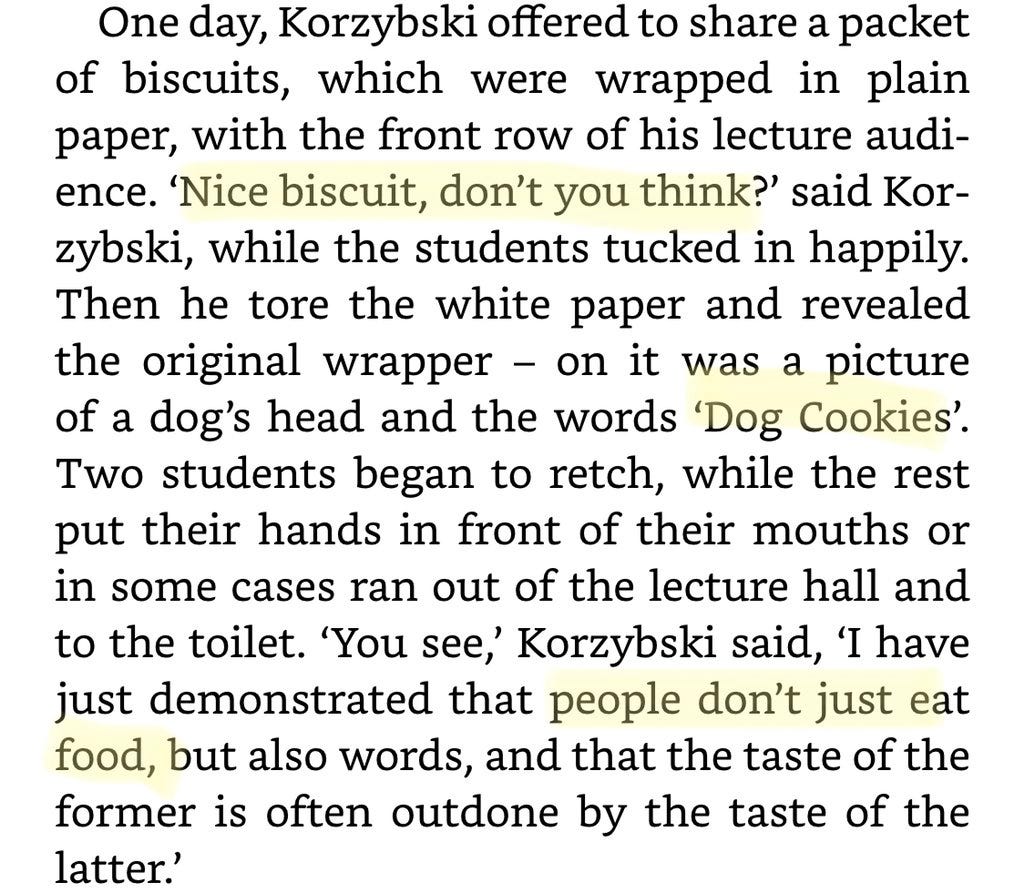
Improve Life by Decreasing Uncertainty
From Rory Sutherland:
“In countries including Korea and China, accidents at intersections have been reduced by simply displaying the number of seconds remaining before the lights turn green. This is because the mammalian brain has a deep-set preference for control and certainty. The single best investment ever made by the London Underground in terms of increasing passenger satisfaction was not to do with money spent on faster, more frequent trains – it was the addition of dot matrix displays on platforms to inform travelers of the time outstanding before the next train arrived.”
Art Crime

Outstanding Article about Housing in America
Alex Danco is one of my very favorite writers. If you’re interested in American housing policy, you should absolutely read this:
“Houses are big purchases, and we almost always buy them on credit and pay off the mortgage over time. Even if you have cash in hand, you will probably still opt for a mortgage: it’s ultra cheap cost of capital, subsidized by the government. You should probably take it! Over the last century, in the United States and many (although not all!) western countries, we’ve entered and perpetuated a durable, positive feedback cycle where the supply of credit and the price of housing has mutually reinforced each other upwards.
The thing with positive feedback cycles is that they necessarily come to an end, unless there is some enormous reservoir of resources they can draw from in order to keep perpetuating. In the housing market, the basic mechanic through which this keeps perpetuating is: banks lend money to homebuyers; the more freely they lend it, the higher it will drive house prices. This has two mutually reinforcing consequences: people will need bigger mortgages, and the bank will be able to issue them, since they’re allowed to lend up to a specific leverage ratio that is now buoyed by rising home values. There are many more ingredients to this cycle (see the diagram below), but that’s the basic idea.”
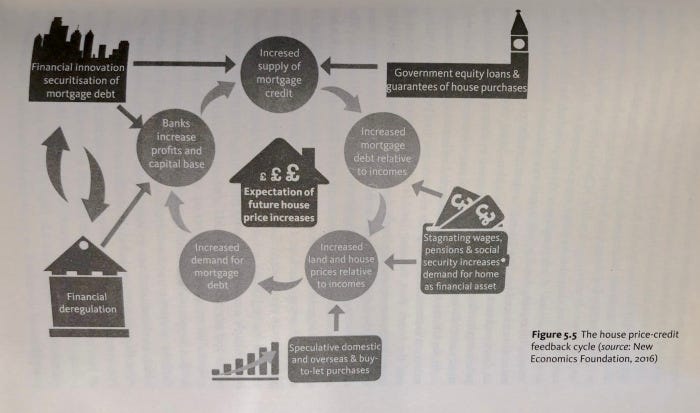
And if you like the essay, you’ll like the podcast I recorded with Alex.
Photo of the Week
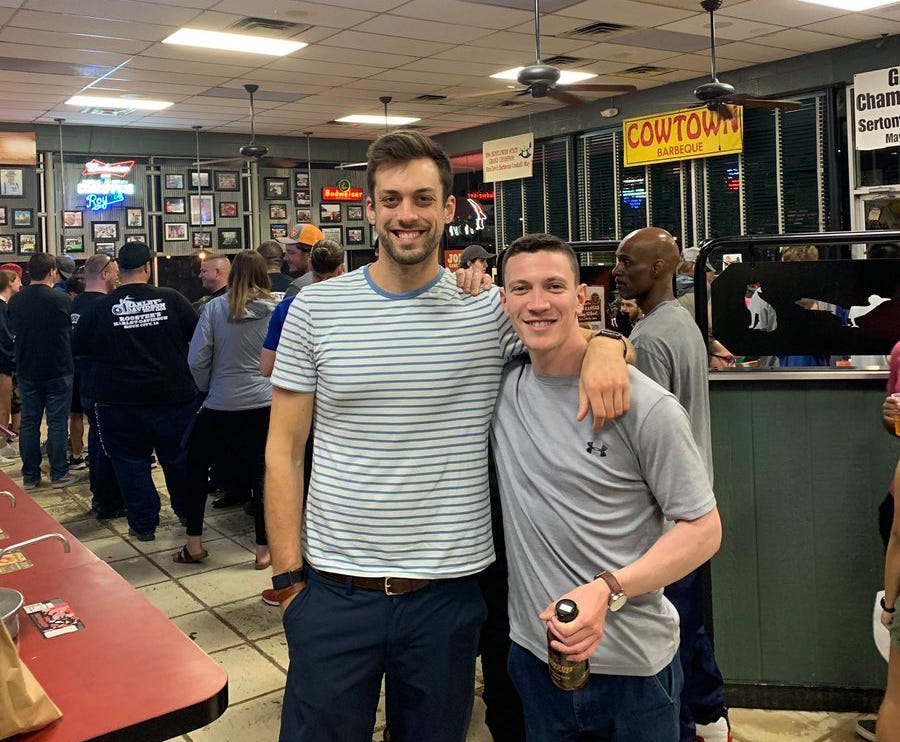
The food in Kansas City was epic. In addition to Joe’s BBQ (where this photo was taken), I enjoyed Heirlooms, Carniceria San Antonio, and Oddly Correct Coffee.
My friend Eric (on the left) is an outstanding writer and is writing a book about Naval Ravikant. Spoiler alert: I saw an early version and it’s excellent.
Kansas City was bigger than expected. I was continuously surprised by the lack of traffic, the long stretches of green grass, and the steady speed of life. Here’s what I’ll remember:
Believe it or not, there are two cities called Kansas City. The big one is in Missouri, but there’s a Kansas City, Kansas too. Most of the best schools are on the Kansas side of the border. As one woman told us at breakfast: “if you live on the Missouri side of the border, you basically have to send your kids to private school.” Kansas City, Missouri’s education system sounds like a mess. For years, they spent more money per student (on a cost of living adjusted basis) than any other of the 280 largest districts in the country. At 12-to-1, the student-to-teacher ration was the lowest of any major school district in the country. And yet, test scores were dismal.
Everybody I spoke to loved Kansas City. And after 24 hours, I get it. The parks are big, there’s basically no traffic, and the barbecue is finger-licking delicious. The locals have tons of Kansas City pride. Bright blue Kansas City Royals hats glittered across every room I entered, and as I walked the streets, I saw lots of Kansas City themed stores that appealed to locals, not tourists.
Art Deco architecture is everywhere. As a New Yorker, I’ve spent hours learning about Art Deco architecture, which was prominent in the late 1920s and early 1930s. In particular, I enjoyed the Kansas City Power and Light Building (built in 1931), the National World War I monument (built in 1926).
People who succeed in Kansas City stay in Kansas City and give back to Kansas City. Relative to other cities, Kansas City has a local, homegrown spirit. For example, the Kauffman Foundation (founded by Ewing Kauffman who founded a drug company called Marion Laboratories) heavily invests in civic life in Kansas City. On the philanthropic note, Kansas City has more fountains that just about any city I’ve ever visited. My friend told me that most of them are maintained by wealthy individuals and institutions like the Kauffman Foundation.
If you have a chance to visit Kansas City, do it. I think you’ll enjoy it.
Until next week,
David Perell
Subscribe to Monday Musings by David Perell
A Celebration of Learning and Curiosity. Written by David Perell


